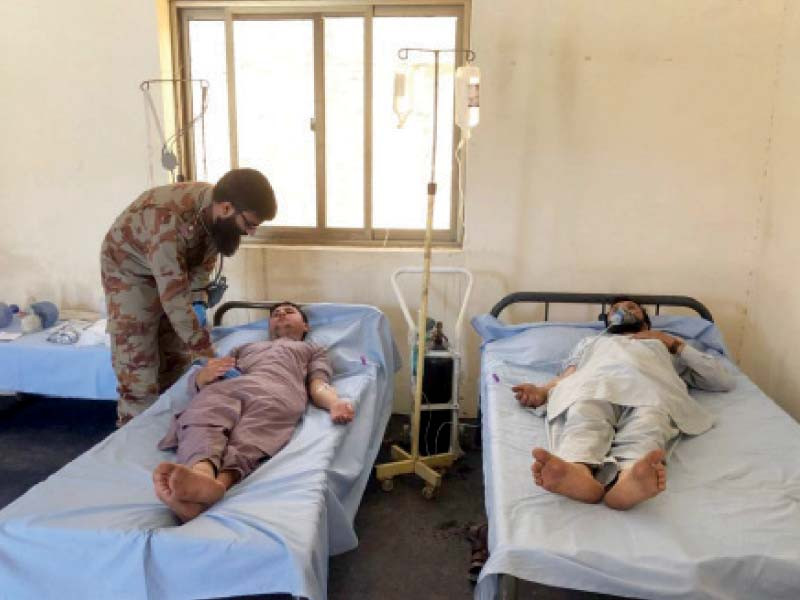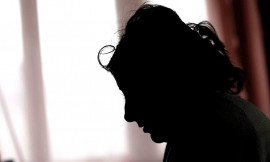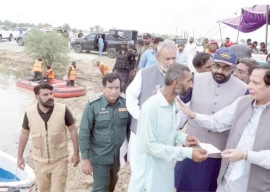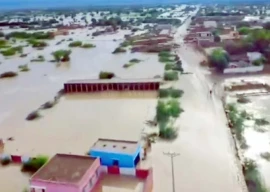
Already reeling from the loss of their homes and present lack of food, flood victims are now also experiencing a shortage of medicines and lack of proper healthcare which has further exacerbated their problems.
Despite the routine medical checkups at camps, flood affectees are dismayed at the lack of proper attention which they believe will result in them falling victim to even more diseases. Khalid Khan, who is living under a tent with his family in Nowshera, is currently going through such a crisis. “My son has developed some sort of skin disease but there are no medicines in our camp to treat him,” said a distraught Khalid, “they are just giving out generic medication which has not helped us at all.”
Khalid further informed that he was not alone in his plight, as there were many others with diarrhoea, blood pressures, and diabetes who had not been given any medicines at all.
Shazia Bibi, who is living in another camp, concurring with Khalid stated that the situation was even worse for pregnant women and children due to their low immunity levels but no one had turned their attention to providing proper medical care. Presently there are 55 tent settlements in Nowshera established by the district administration for the flood affectees, however only 22 medical camps have been set up.
When asked about this disparity and the lack of proper attention, a provincial health department official conceded, under the condition of anonymity, that the situation was dire.
“We have recorded more than 60,000 cases of different ailments including diarrhoea, respiratory infections, and skin diseases.” However, despite there being a plethora of cases already, the official said that there was little the department could do as the destruction of infrastructure had made it difficult to provide quality healthcare and medicines on any emergency basis. Dr Ahmed Zeb, who is serving as a medical officer in Nowshera and Charsadda medical camps, agreeing with the official said that welfare organisations and the provincial Young Doctors Association had set up the camps but they could not meet the health needs of the flood victims.
“There is a dire need for medication for hypertension, depression, diabetes, skin diseases, and chest infections. Women and children are the amongst those who have been affected the worst and if we do not get the required drugs in a timely manner then the situation will deteriorate further,” said Dr Ahmed while talking to The Express Tribune.
Published in The Express Tribune, September 5th, 2022.




1732623521-0/bitcoin-(1)1732623521-0-165x106.webp)


1724919650-0/Untitled-design-(5)1724919650-0-270x192.webp)













COMMENTS
Comments are moderated and generally will be posted if they are on-topic and not abusive.
For more information, please see our Comments FAQ